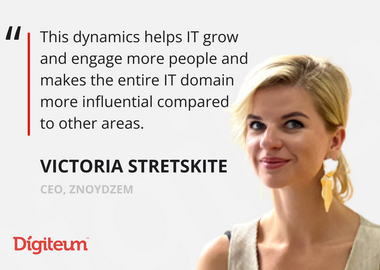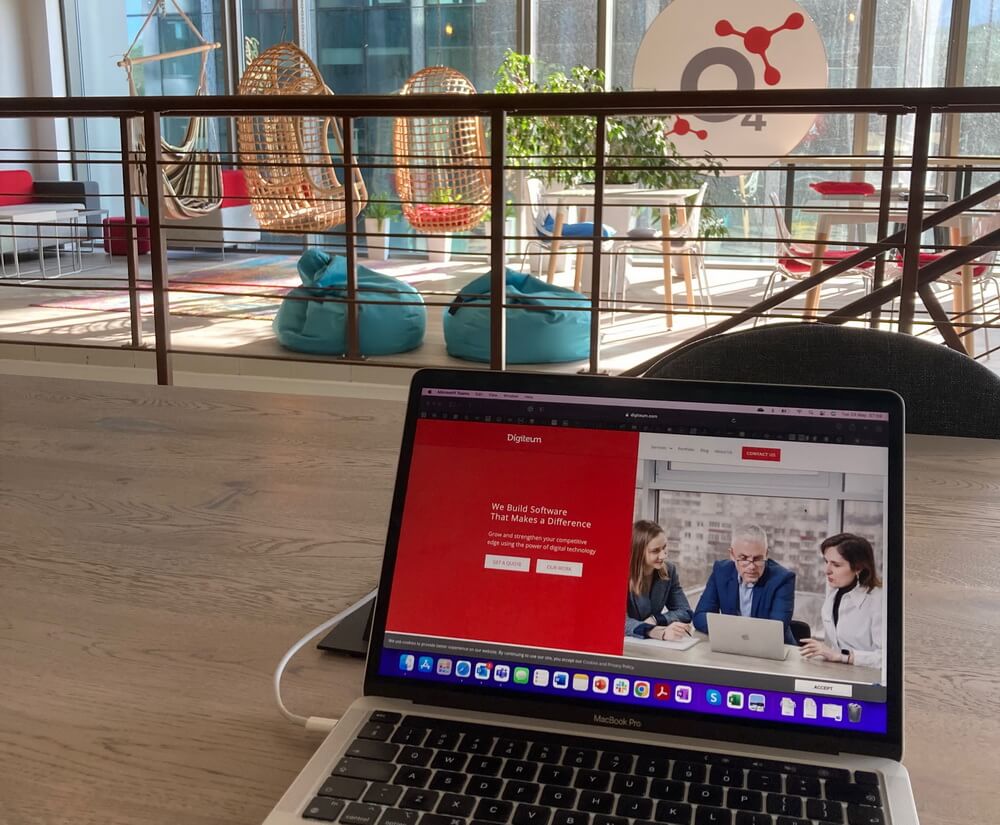Digiteum Talks About Key Trends in IT Recruiting in 2023
The last couple of years in IT were more turbulent than a transatlantic flight in mid-January. Layoffs, mass relocation, acute talent shortage, quiet quitting. Seems like we saw it all.
But how do these ups and downs affect the market in 2023? Did we finally get a little break from a hiring race? Or is it still easier to find a unicorn than a senior .NET engineer with solid Docker experience and C1 English? (If you know one — engineer, not a unicorn, — drop us a line.)
To answer these and many other burning questions about hiring IT talent this year, we talked to IT recruiting specialists who work on the frontline and know the market inside out. Here they are:
Victoria, CEO at Znoydzem, an established IT recruiting agency based in Warsaw
Monika, Talent Manager at Digiteum
Julia, Recruiter at Digiteum
Łukasz, Recruiter at Digiteum
And here’s what they can share about the top trends that shape IT recruiting in 2023.
Saturated market, layoffs, and a never-ending battle for stellar candidates
You are on the frontline of the IT market. What’s going on right now and what should we expect from this year?
Julia: I can see that the candidates are getting more engaged. It was really hard to convince developers to talk to recruiters before. Seeing all the layoffs, they now become more proactive and ready to put effort into the recruitment process. And they no longer wait for us to reach out.
Employers, on the other hand, are more focused on quality over quantity in their hiring strategy. They want to hire fewer people and don’t mind paying more. What they are looking for are highly-qualified specialists that could provide value to the business.
Łukasz: More and more candidates admit that their motivations have changed. The bench is getting fuller. During 2021-2022, many IT companies overrecruited, hoping for the demand to go up. Now they have to let people go. I’ve seen the recent charts: from May 2022 until the start of 2023, META alone laid off 11,000 people. Amazon — 10,000, Twitter — 9,000. These are large numbers.
And now we have a saturated market. This trend is slowly reaching Europe, and we can already see it here in Poland as well. Even well-known software houses and tech companies are laying off employees because they can’t keep them on the bench indefinitely — it generates too much cost. Developers are sensing this and realizing that the situation is getting worse. That’s why they are becoming more proactive.
For example, they don’t mind a two or three-step recruiting process. When we explain why hiring can involve several stages, they accept it. Of course, this makes our lives easier because instead of only sourcing candidates, we now have people actively applying for jobs. It’s an interesting time to be in this space right now.
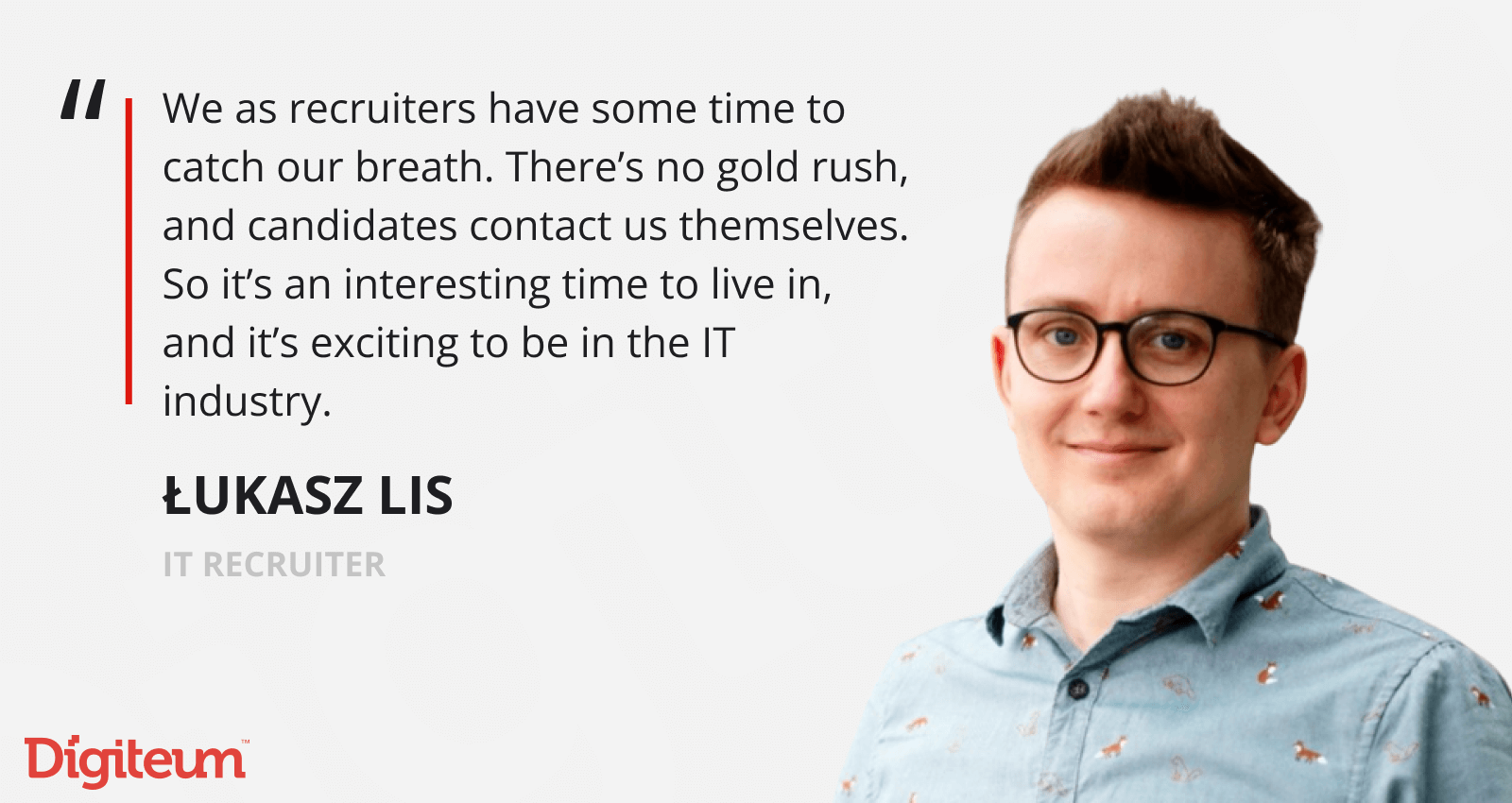
Victoria: It’s true, but on the other hand, we see that experienced senior engineers with good soft skills hold on their jobs. If you are looking for brilliant candidates with strong soft skills, you must know how to impress them with your offer. For instance, you need to demonstrate that your company is stable and provides the right environment for engineers to grow.
Skilled senior candidates are still hard to get. We have more people in the market compared to previous years, so we also need to research and filter more. Everyone knows that the first people to let go are usually the ones with the least experience.
Another trend I see is that companies use this opportunity to change some people on their teams. Especially product companies and those who work with long-term projects. The period of Covid and the shift to remote work have impacted employee productivity. Hiring new, highly motivated talent can help companies introduce fresh perspectives and drive change.
Healthy competition, realistic salary expectations, and the butterfly effect of layoffs
So you have a bigger pool of candidates but also a lot more work to do. Is it a benefit or a drawback?
Victoria: It is a plus for us. We have more prospects and more candidates to work with. It’s easier to connect with people because they are motivated to learn about the project and get prepared for interviews. Candidates understand that it’s important for them. It was really hard to reach this understanding before.
Monika: It’s also good because we have more room to negotiate salaries. Many candidates have lowered their salary expectations. However, on the other hand, managers have increased their requirements. They want to see more candidates, especially in the final stages of interviews.
Julia: There’s another benefit. Since I’ve been talking to candidates, I’ve noticed a change in their expectations and focus. Candidates are now seeking stable positions.
For example, we have clients we’ve been working with for 5 or even 10 years. This is advantageous for candidates because even if we lose one client, we still have many ongoing projects to switch to, ensuring engineers have a steady position at the company. This alone is enough to convince a candidate to join our company rather than someone else.

Monika: Moreover, during the recruitment process, our candidates meet their future managers and get to know who they would be working with. This gives them a sense of safety and an opportunity to ask questions and clarify if everything we promise is indeed true.
Łukasz: I believe this shift is healthy for the entire IT industry. We used to work in a bubble, a very comfortable environment for developers. Some of them would join the recruitment process solely for fun, just to see how high a salary they could negotiate.
Now everything has cooled off, and developers realize they need to become partners in these relationships. If a client decides to reduce a project and developers are laid off, they return to a very different market.
Monika: Developers understand they need to be more proactive on their current projects to retain their positions. Otherwise, they may be replaced by someone else.
Victoria: I’ve also read that a wave of layoffs could pave the way for future startups and new companies. All the engineers who have been laid off from Google and similar companies had stable positions and wouldn’t consider changing jobs for various reasons such as high salary or mortgages. Now they have the motivation to start their own companies. We can expect a new wave of startups and more clients to work with. So we have come a full circle.
Monika: In contrast, another trend is quiet quitting among senior management. People leave their jobs and pursue completely different occupations, moving away from the business environment and focusing more on their work-life balance.
Łukasz: So, in general, things are becoming more balanced. Companies that used to hire more people and maintain a bench no longer enjoy this advantage. The bench is being fired, so these people are back in the market, which means they get back to work.
I have heard from many candidates that this was their motivation to change jobs. They were benched and getting paid, but they felt stuck and unable to move forward. New employers may consider it a red flag once they find out a candidate was benched for six months or longer.
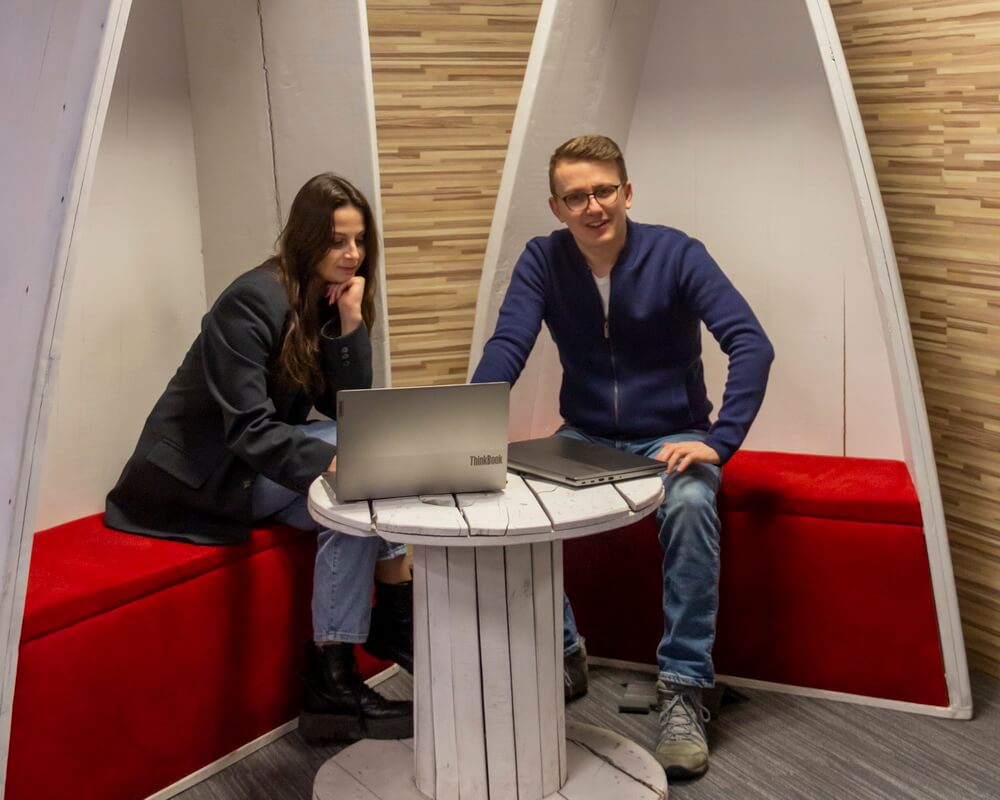
Looks like another win for our candidates since we don’t hire for the bench and focus on long-term projects. How do we choose the right candidates for such projects?
Victoria: We are looking for individuals with a similar set of soft skills and cultural fit that align with our requirements at Digiteum. First of all, we hire specialists with a strong engineering culture. Secondly, we value candidates with an engineering mindset, where they may not have all the answers to our questionnaire but can demonstrate their thought process. And finally, we work with people who can communicate and collaborate as part of a team. We maintain constant communication, and everyone on our teams knows that they can openly ask questions during meetings and receive prompt answers. These are the essential requirements that all our candidates must meet.
Relocation, new tech hubs, and the curious effect of AI on recruiting cycle
Let’s talk about recruiting in different geos. Victoria, you work with a large market and newly discovered locations like Georgia. How are things going there?
Victoria: As a recruiter, I don’t yet have a complete understanding of this market because Georgia is a relatively new IT location. Our work there is impacted by many external and internal factors — migration, the economic and political situation in Georgia and nearby countries.
Moreover, we can’t really call it a Georgian IT market like we would with the Polish IT market, for example. A large number of engineers who work here came from other countries. Georgia provides a very comfortable environment for tech talent at the moment thanks to low taxes and favorable conditions to relocate and start entrepreneurship. But we don’t know whether these conditions will remain the same in the next five years.
Currently, this is an IT hub. And we are aware that many individuals are considering moving on. Some view Georgia as a temporary stop to explore other markets. Although not everyone, but around 40% of people consider relocating further in the future.
So this is still a very dynamic market?
Victoria: Yes, it can be difficult to make long-term plans, for example, opening an office, in the market with so many changing factors. Many aspects such as medical services and education need to be improved here to attract more tech talent. Especially those with families and kids.
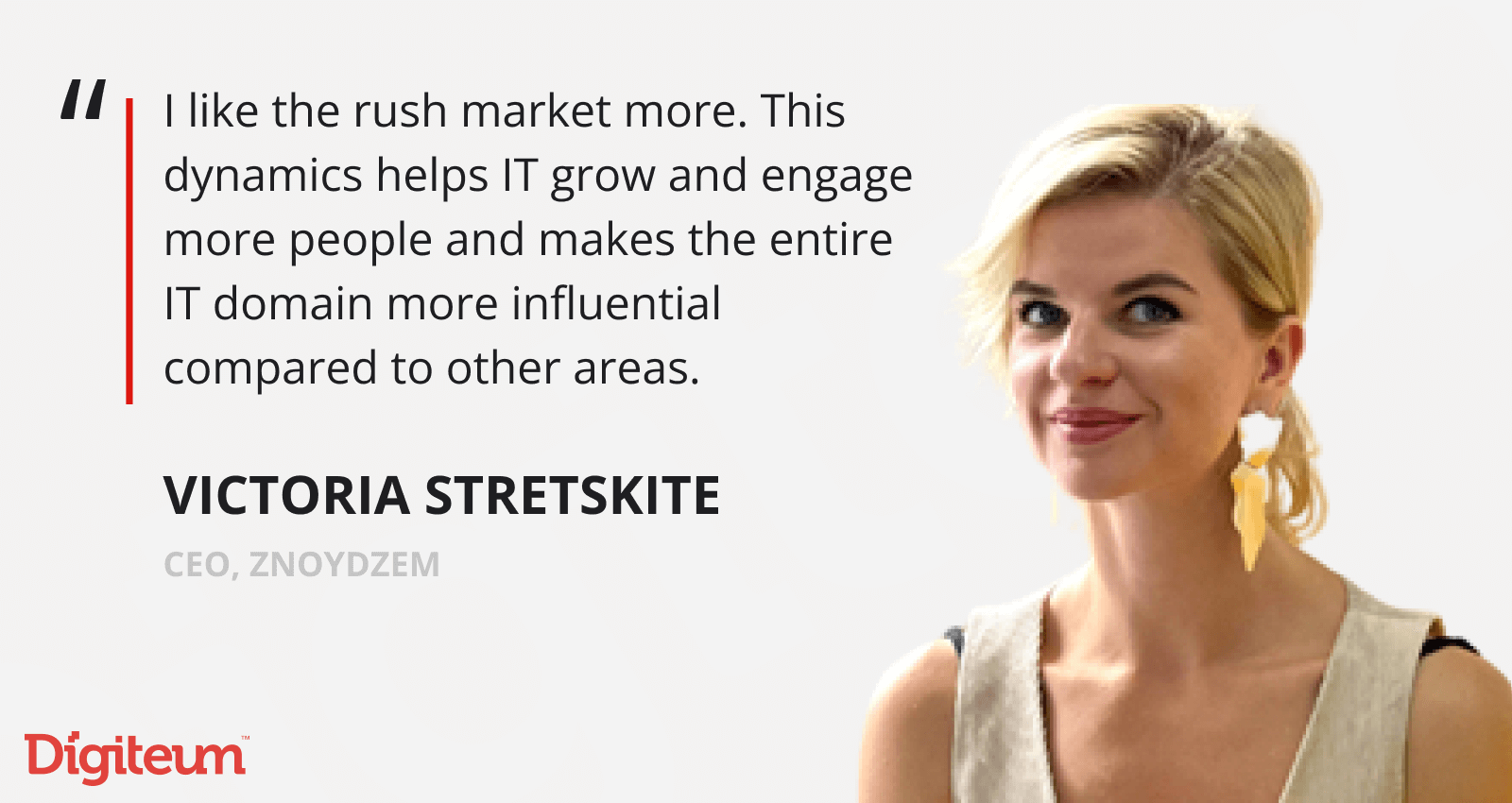
What about Poland? We’ve seen a wave of relocation last year. How are things going now?
Łukasz: Poland remains a sweet spot for tech specialists. People who earn in Euros and USD and spend in Zloty can have a very decent life here compared to those who move to London or Berlin with the same salary. Poland offers a great mix of Western environment and lifestyle, along with a relatively low cost of living for those working in IT. This makes Poland an attractive place to relocate and settle in.
Victoria: We haven’t seen such a significant wave of relocations in 2023 as we did last year. There are more internal changes than external factors impacting the Polish IT market this year.
Monika: For instance, the terms of the Poland. Business Harbour visa and the review process have become stricter.
Are you positive about these changes in the IT talent market?
Victoria: I like the rush market more. This dynamics helps IT grow and engage more people and makes the entire IT domain more influential compared to other areas. I believe that in a few years, we will get to the point where IT stands in one line with fintech, marketing, and other domains.
On the other hand, I see it as part of a cycle. We are currently experiencing a period of calm, but I anticipate more dynamism in the future. For instance, if we analyze the statistics of companies that have laid off thousands of employees — the ones Łukasz mentioned earlier — we can observe their positive financial results each year. So it’s all part of a bigger game, and I hope we can secure our share in it.
Monika: I believe these are all positive changes. Now that AI is getting bigger, we will soon be able to outsource some tasks to it. It also makes it easier for people to get into the IT market. So from where I stand, it’s a big plus.
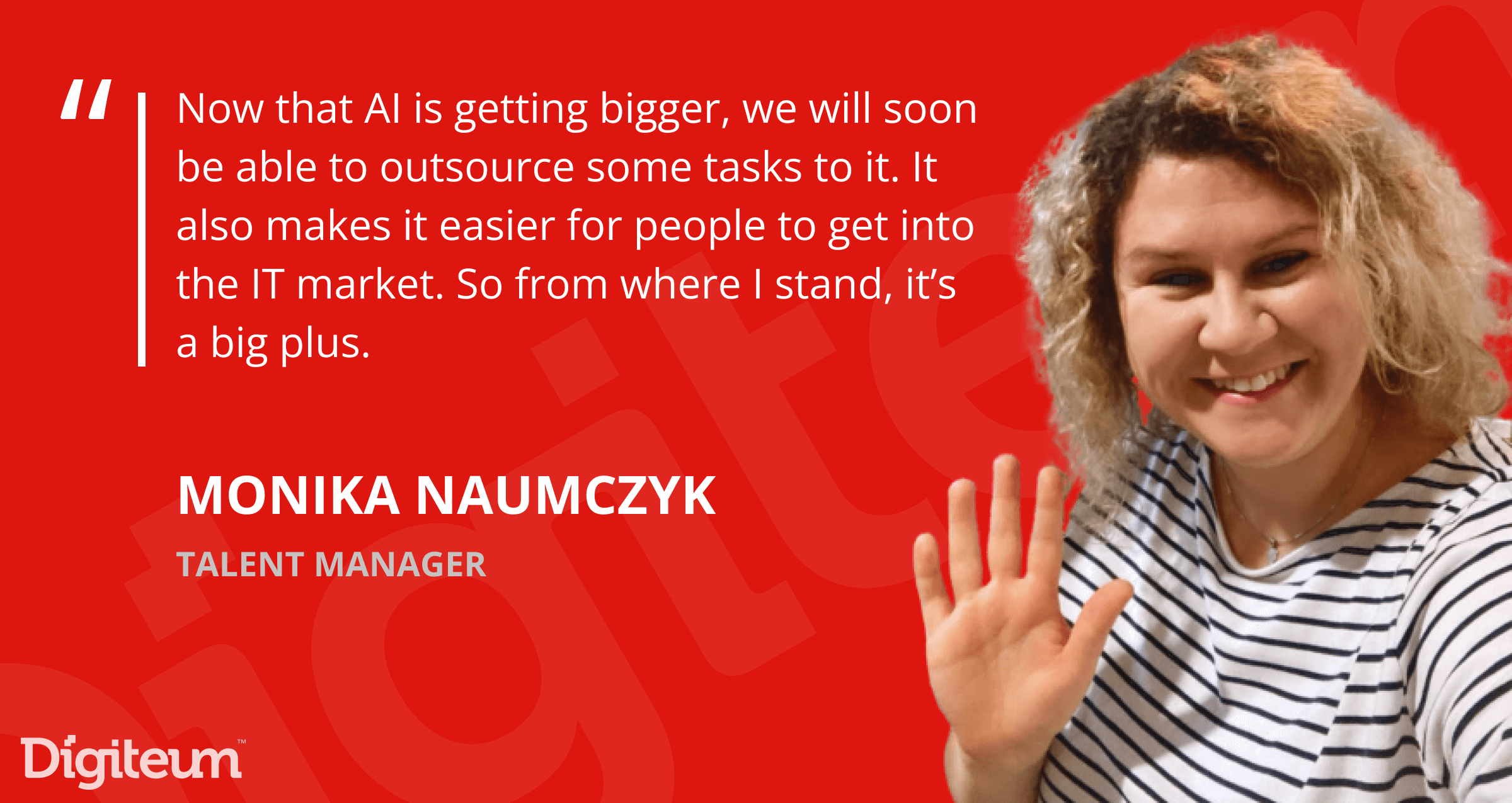
Julia: I agree. Nowadays, processes are getting more automated, we can speed up and actually have more time to talk to candidates, give feedback, and better understand people’s needs. We can also invest more in employer branding. It’s good both for the recruiters and the IT companies.
Łukasz: As long as we continue using mobile phones, the internet, and web applications, technology will surround us, and there will always be a need for someone to shape it.
It’s still like the wild wild west out there. Since the last updates of ChatGPT and other AI technologies, things have been changing rapidly. However, we still can’t predict how much of our work will be taken over by AI. Sure, it will speed up some processes, but will it take only the junior work or will it also affect senior positions?
We as recruiters have some time to catch our breath. There’s no gold rush, and candidates contact us themselves. So it’s an interesting time to live in, and it’s exciting to be in the IT industry.
Does AI already take part in your recruiting process?
Łukasz: Yes, I use ChatGPT to speed up some general writing like messages or tutorials. For instance, when I have a manuscript and I need to sum it up to show to a candidate. It’s a lot easier to have it done by ChatGPT.
Generally, recruiters use this tool to develop their own brand, because it speeds up writing articles and finding resources. We can’t use it as much as marketers or developers, and we know that AI makes mistakes. But it’s only a matter of time before we see the next big explosion in this area.
Monika: On the other hand, technical recruiters now need to ask candidates more questions because it’s easier to present some tasks done by AI.
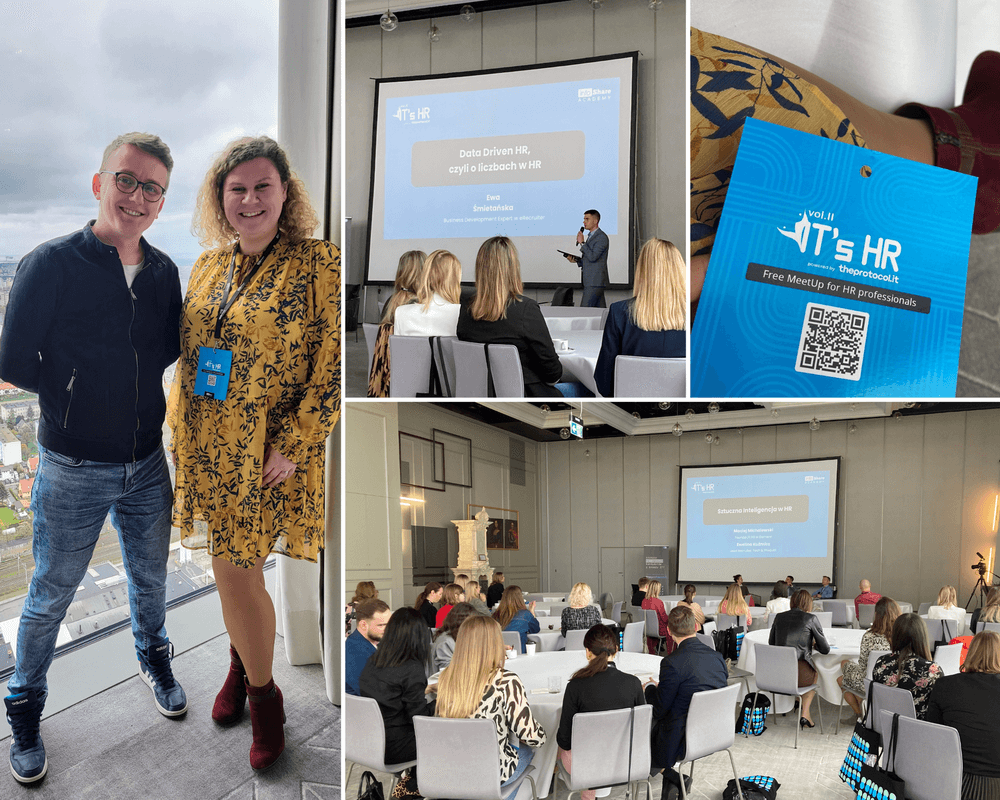
So AI also poses some challenges, right?
Łukasz: I’m curious to see how it will work out. We all started with interviewing people offline. We used to talk to people face-to-face and knew that candidates were using their own knowledge. Now we interview people online and may not even have a clue if a candidate is using some tools or scripts to answer questions. ChatGPT can connect to mics to directly respond to questions in real time. It will be funny when the cycle closes and we have to get back to in-person meetings to make sure people are who we believe they are.
Monika: And to figure out how to fit it into the concept of remote work now that we don’t have physical offices.
So, what’s the verdict? IT recruiting in 2023: minefield or goldmine? Looks like it’s a bit of both. Sure, recruiters have a lot more work cut out for them but also have a lot more market to work with and a lot more tools to work smarter. We can only wish you ‘good hunting on a new trail’.
Seriously, if you know a senior .NET engineer ready for a career uplift, don’t wait up, drop us a line.


